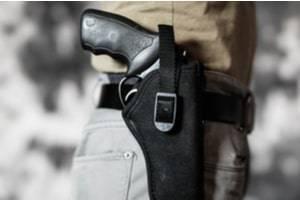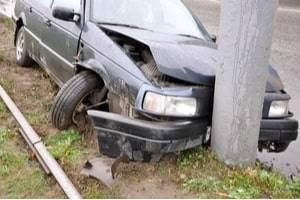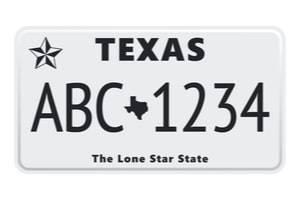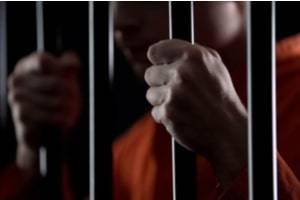Recent Blog Posts
Do To-Go Alcohol Sales Conflict with Open Container Laws?
 The COVID-19 pandemic has changed the way that restaurants are allowed to operate in Texas. The recent decision to close bars amid concerns about spreading the coronavirus has received attention, including protests by bar owners and employees. Texas had earlier enacted another change to how alcohol is sold when it allowed to-go alcohol sales from restaurants. Texas Gov. Greg Abbott signed the waiver for to-go alcohol sales in order to help restaurants that could no longer serve dine-in customers. He has said that he will consider continuing the practice after the pandemic is over because of its popularity. However, to-go alcohol sales can potentially lead to drivers violating the open alcohol container laws and a charge of driving while intoxicated if they are not careful.
The COVID-19 pandemic has changed the way that restaurants are allowed to operate in Texas. The recent decision to close bars amid concerns about spreading the coronavirus has received attention, including protests by bar owners and employees. Texas had earlier enacted another change to how alcohol is sold when it allowed to-go alcohol sales from restaurants. Texas Gov. Greg Abbott signed the waiver for to-go alcohol sales in order to help restaurants that could no longer serve dine-in customers. He has said that he will consider continuing the practice after the pandemic is over because of its popularity. However, to-go alcohol sales can potentially lead to drivers violating the open alcohol container laws and a charge of driving while intoxicated if they are not careful.
How Do To-Go Sales Work?
The waiver for to-go alcohol sales allows customers to purchase an alcoholic beverage as a carry-out order as long as:
How Texas DWI Enforcement Applies to Motorcycles
 For riders throughout the U.S., motorcycles are more than a means of transportation. Owning and riding a bike can be a hobby, passion, and part of your identity. However, you need to remember that motorcycle riders follow the same laws for driving while intoxicated as everyone else on the road. If you are caught operating your bike with a blood alcohol concentration greater than 0.08 percent, you will face a misdemeanor criminal charge that could result in jail time, a fine of as much as than $2,000, and a driver’s license suspension. The suspension would also affect your eligibility to operate other vehicles.
For riders throughout the U.S., motorcycles are more than a means of transportation. Owning and riding a bike can be a hobby, passion, and part of your identity. However, you need to remember that motorcycle riders follow the same laws for driving while intoxicated as everyone else on the road. If you are caught operating your bike with a blood alcohol concentration greater than 0.08 percent, you will face a misdemeanor criminal charge that could result in jail time, a fine of as much as than $2,000, and a driver’s license suspension. The suspension would also affect your eligibility to operate other vehicles.
Signs of DWI on a Motorcycle
Operating a motorcycle requires a different set of skills than driving a car, including the ability to keep yourself balanced and shift your body during turns. Because of this, police officers are looking for different signs that may indicate motorcycle riders are intoxicated. The National Highway Traffic Safety Administration describes these signs as “cues” and has two categories of cues that it instructs officers to watch for in motorcycle riders. According to an NHTSA study, “excellent cues” predicted a motorcycle DWI half of the time and include:
Possessing a Weapon During DWI Leads to Additional Charge
 Many Texas residents have gone through the required steps in order to receive a license to carry (LTC) a firearm. The process involves submitting an application, taking state-approved training courses, and showing that their record is clear of any recent criminal charges. With an LTC, residents are allowed to carry an open or concealed weapon in most public places. However, legal gun possession can become a crime if you are being charged with committing another criminal offense at the same time, such as driving while intoxicated.
Many Texas residents have gone through the required steps in order to receive a license to carry (LTC) a firearm. The process involves submitting an application, taking state-approved training courses, and showing that their record is clear of any recent criminal charges. With an LTC, residents are allowed to carry an open or concealed weapon in most public places. However, legal gun possession can become a crime if you are being charged with committing another criminal offense at the same time, such as driving while intoxicated.
Unlawful Carrying of Weapon
Let us say that you have an LTC and are driving with your weapon either on your person or somewhere in the vehicle. A police officer stops you and, after observing your behavior, decides to arrest you on suspicion of DWI. The officer finds your weapon while searching your body or vehicle. Under Texas law, you may now receive an additional charge of unlawful carrying of a weapon, which is a Class A misdemeanor. How can you be unlawfully carrying your weapon when you have a valid LTC? Texas law states that it is unlawful to carry a weapon while committing a criminal offense, such as a robbery, assault, or, in this case, driving while intoxicated. The same weapon charge may apply if you are caught driving with an open container of alcohol in your vehicle.
How a Single-Vehicle Crash Affects a DWI Case
 When a driver is involved in a crash, the responding police officers will be on alert for signs that the driver is intoxicated. They may become suspicious if there is an odor of alcohol coming from the vehicle or the driver has symptoms of intoxication. Driving while intoxicated in an incident that causes serious injury to another party is a felony instead of a misdemeanor. However, some suspected DWI incidents are single-vehicle accidents in which no one other than the driver was injured. How might a single-vehicle accident affect your DWI case? There are several factors to consider:
When a driver is involved in a crash, the responding police officers will be on alert for signs that the driver is intoxicated. They may become suspicious if there is an odor of alcohol coming from the vehicle or the driver has symptoms of intoxication. Driving while intoxicated in an incident that causes serious injury to another party is a felony instead of a misdemeanor. However, some suspected DWI incidents are single-vehicle accidents in which no one other than the driver was injured. How might a single-vehicle accident affect your DWI case? There are several factors to consider:
- Cause of the Accident: When a person charged with DWI is in a single-vehicle crash, there can be an assumption that the suspect’s intoxication caused the crash. Proving that other circumstances were responsible for your crash could help dispel the idea that you must have been intoxicated. The road conditions may have been treacherous because of precipitation or debris. You may have reacted to the reckless behavior of another driver. Your vehicle may have malfunctioned. You need to tell your defense lawyer what caused your crash.
Choose Your Words Carefully During a DWI Stop
 If you have ever been pulled over by a police vehicle, you know the dread and nervousness you feel even if you do not believe you have done anything wrong. Feeling nervous can cause you to say things that you will later regret. Unfortunately, police can use what you say during a traffic stop as evidence in order to arrest you for an offense such as driving under the influence of alcohol or drugs. How can you get through a traffic stop without saying something that may be incriminating? You should know when to be quiet and how to answer questions honestly without divulging too much information.
If you have ever been pulled over by a police vehicle, you know the dread and nervousness you feel even if you do not believe you have done anything wrong. Feeling nervous can cause you to say things that you will later regret. Unfortunately, police can use what you say during a traffic stop as evidence in order to arrest you for an offense such as driving under the influence of alcohol or drugs. How can you get through a traffic stop without saying something that may be incriminating? You should know when to be quiet and how to answer questions honestly without divulging too much information.
Silence Is Golden
One way to avoid making an incriminating statement is to keep your talking to a minimum during the stop. Speak when the officer asks you a question but otherwise remain silent. Do not volunteer information that the officer did not ask for, even if you think that it may help you. For instance, saying that you are not drunk before the officer asks you a question will make them more suspicious. You do not have to prove anything. The officer is the one who must prove that there is probable cause to arrest you.
Four Medical Conditions That Can Be Mistaken for Intoxication
 If you are stopped on suspicion of driving while intoxicated, the police officer will be looking for signs that you may be under the influence of alcohol or drugs. Besides the telltale odor of alcohol, symptoms of intoxication include slurred speech, watery eyes, and appearing disoriented. However, there are pre-existing medical conditions that may cause these same symptoms without you being intoxicated. Even a breath alcohol test can be tainted by a medical condition. An officer will likely assume that these symptoms are due to intoxication, and it may not occur to you to mention your medical condition during your stop. You need to tell your DWI defense lawyer if you have any of the following conditions:
If you are stopped on suspicion of driving while intoxicated, the police officer will be looking for signs that you may be under the influence of alcohol or drugs. Besides the telltale odor of alcohol, symptoms of intoxication include slurred speech, watery eyes, and appearing disoriented. However, there are pre-existing medical conditions that may cause these same symptoms without you being intoxicated. Even a breath alcohol test can be tainted by a medical condition. An officer will likely assume that these symptoms are due to intoxication, and it may not occur to you to mention your medical condition during your stop. You need to tell your DWI defense lawyer if you have any of the following conditions:
- Diabetes: A person with diabetes can function normally as long as they keep their blood sugar at a stable level. If their blood sugar falls too low, they can become irritable, dizzy, and disoriented – all of which the officer could interpret as intoxication. Additionally, people with diabetes may have an abnormally high amount of ketones in their breath, which a breath test may mistake for alcohol.
Alcohol Sellers Can Be Culpable in DWI Cases
 When a person is accused of driving while intoxicated, they are considered responsible for becoming intoxicated and choosing to drive. A first-time DWI conviction in Texas is a Class B misdemeanor, punishable by as long as 180 days in jail, a fine of $2,000, and a driver’s license suspension. However, responsibility for a DWI sometimes extends to the person who served the alcohol to the driver. It is a crime in Texas to sell alcohol to someone who is intoxicated, and a conviction can lead to serious consequences – particularly if the intoxicated person hurts someone during their DWI incident.
When a person is accused of driving while intoxicated, they are considered responsible for becoming intoxicated and choosing to drive. A first-time DWI conviction in Texas is a Class B misdemeanor, punishable by as long as 180 days in jail, a fine of $2,000, and a driver’s license suspension. However, responsibility for a DWI sometimes extends to the person who served the alcohol to the driver. It is a crime in Texas to sell alcohol to someone who is intoxicated, and a conviction can lead to serious consequences – particularly if the intoxicated person hurts someone during their DWI incident.
Bartender Charged in Connection with DWI Case
A bartender in Austin, Texas, was recently arrested for allegedly serving alcohol to an intoxicated man who was later involved in a fatal accident. The driver was charged with intoxication manslaughter and failure to stop and render aid. The driver allegedly hit a man pushing a shopping cart and fled the scene on foot before police caught him. An investigation by the Texas Alcoholic Beverage Commission determined that a bartender at an area restaurant had served alcohol to the driver when he was noticeably intoxicated. After arresting the bartender, the Commission stated that alcohol retailers and their employees must be accountable for monitoring the physical condition of their customers and potentially preventing a DWI incident.
How a Background Check on Your Texas License Plate Can Lead to a DWI Arrest
 An arrest for driving while intoxicated in Texas starts with the police officer having reasonable suspicion that the driver has broken the law, either while monitoring passing traffic or when responding to an accident. An officer is legally allowed to stop a driver if the driver has committed a traffic violation or is driving in a manner that suggests impairment. The officer may also conduct a background check on drivers by entering their license plate numbers into a database, which may indicate that the driver has an outstanding warrant or the vehicle is not confirmed to have liability insurance. During the stop, the officer can arrest the driver for DWI if there is probable cause to believe that the driver is intoxicated.
An arrest for driving while intoxicated in Texas starts with the police officer having reasonable suspicion that the driver has broken the law, either while monitoring passing traffic or when responding to an accident. An officer is legally allowed to stop a driver if the driver has committed a traffic violation or is driving in a manner that suggests impairment. The officer may also conduct a background check on drivers by entering their license plate numbers into a database, which may indicate that the driver has an outstanding warrant or the vehicle is not confirmed to have liability insurance. During the stop, the officer can arrest the driver for DWI if there is probable cause to believe that the driver is intoxicated.
Precedent in Texas
A 2017 Texas appellate court ruling confirmed that a police officer is legally allowed to stop a vehicle that a database flagged for not having insurance, even if the database was inaccurate. In 2015, an officer was entering plate numbers of passing vehicles when one was listed for “unconfirmed insurance,” which could mean that the insurance on the vehicle had lapsed. He stopped the vehicle to check for proof of insurance and eventually arrested the driver on suspicion of DWI.
How CBD Products Can Lead to a False DWI Charge in Texas
 Texas passed a law in 2019 that legalized the sale and use of hemp and its derivative products. The law, in turn, has grown the market for cannabidiol (CBD) products in the state. You may have noticed signs and advertisements for products infused with CBD, such as oils, edibles, and lotions. CBD should not be confused with tetrahydrocannabinol (THC), an active ingredient in marijuana, which is still illegal in Texas except for medical use in specific cases. It is legal to drive after having consumed CBD products because it should not impair your driving ability. However, some drug testing labs in Texas admit that their equipment is unable to tell the difference between CBD and THC, which could lead to someone being wrongly charged with driving while intoxicated by marijuana.
Texas passed a law in 2019 that legalized the sale and use of hemp and its derivative products. The law, in turn, has grown the market for cannabidiol (CBD) products in the state. You may have noticed signs and advertisements for products infused with CBD, such as oils, edibles, and lotions. CBD should not be confused with tetrahydrocannabinol (THC), an active ingredient in marijuana, which is still illegal in Texas except for medical use in specific cases. It is legal to drive after having consumed CBD products because it should not impair your driving ability. However, some drug testing labs in Texas admit that their equipment is unable to tell the difference between CBD and THC, which could lead to someone being wrongly charged with driving while intoxicated by marijuana.
Difference Between CBD and THC
People sometimes confuse hemp with marijuana because they both come from the cannabis plant. As the legalization of hemp shows, federal and local governments now recognize that hemp does not pose the same dangers as marijuana. One of the primary differences between hemp and marijuana is the amount of CBD and THC it has. Hemp, by legal definition, has less than 0.03 percent THC, which is not enough to impair a normal person. CBD has the same molecular structure as THC but does not have the psychoactive component that would impair someone.
Multiple DWI Convictions Can Add Up to Longer Prison Sentences
 A Texas man was recently sentenced to 65 years in prison after his ninth conviction for driving while intoxicated. The defendant was charged following a single-car accident, during which he allegedly had a 0.263 blood alcohol concentration. While this may seem like severe punishment for an incident in which no one was harmed, it is not unusual in Texas. Courts have issued life sentences to offenders who had a history of repeated DWI convictions. Judges usually rationalize the harsh sentences by describing the defendant as a habitual offender who has shown that they will not change their behavior and will continue to be a danger to others. Being convicted for multiple DWI offenses not only enables courts to issue more severe punishments but may also motivate a judge to utilize the full extent of those punishments.
A Texas man was recently sentenced to 65 years in prison after his ninth conviction for driving while intoxicated. The defendant was charged following a single-car accident, during which he allegedly had a 0.263 blood alcohol concentration. While this may seem like severe punishment for an incident in which no one was harmed, it is not unusual in Texas. Courts have issued life sentences to offenders who had a history of repeated DWI convictions. Judges usually rationalize the harsh sentences by describing the defendant as a habitual offender who has shown that they will not change their behavior and will continue to be a danger to others. Being convicted for multiple DWI offenses not only enables courts to issue more severe punishments but may also motivate a judge to utilize the full extent of those punishments.
Consequences of Multiple Convictions
One way that a DWI conviction can be a felony in Texas is if it is your third DWI conviction. According to Texas law:





